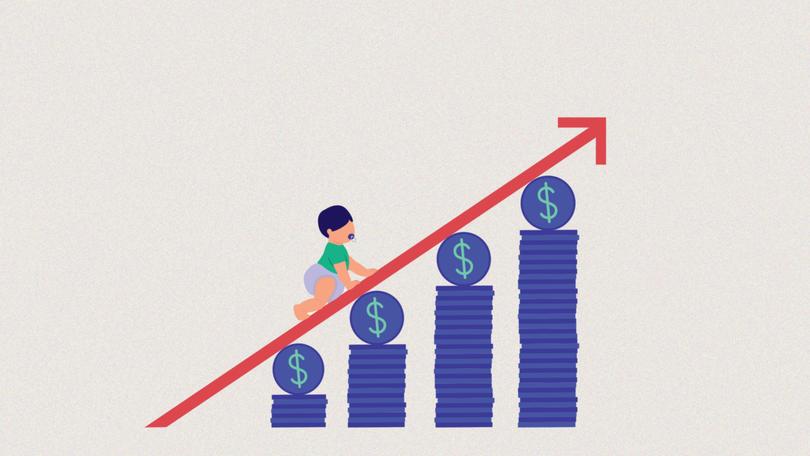SIMON BIRMINGHAM: Childcare matters but that doesn’t mean it should be universally subsidised
SIMON BIRMINGHAM: Why should taxpayers be subsidising higher-income families’ childcare fees when the subsidy makes little difference, if any, to their workforce participation?

Means testing can sound kind of, well, mean. In truth, it’s at the centre of the great Aussie fair go.
Right now the Albanese Government is frantically briefing that more money for childcare will be central to its re-election, pitching a universal model of free child care.
To achieve this, Labor would axe or substantially reduce the two tests currently applied to childcare subsidies. Those tests apply to how much parents earn, and how many hours of child care they need.
Sign up to The Nightly's newsletters.
Get the first look at the digital newspaper, curated daily stories and breaking headlines delivered to your inbox.
By continuing you agree to our Terms and Privacy Policy.Before dissecting Labor’s possible policy, it’s worth remembering how widely means testing is used in Australia and why it’s used.
Means testing exists from birth to death. Family tax benefit payments give targeted financial assistance to lower-income families, helping with the costs of raising children.
The aged pension is means-tested against income and assets (excluding the family home) to ensure those without adequate retirement savings have a minimum income in their senior years.
In between childhood and retirement, key social safety nets like youth allowance, the Newstart allowance and disability support payment are all means tested.
While Medicare and access to public hospitals or government schools are all universally available, government policies still target support to those who can least afford to pay or incentivise contributions from those who can.
For example, the bulk billing incentive encourages doctors to bulk bill social safety net recipients, children and retirees. While higher income earners are made to pay a higher rate of Medicare levy if they do not have private health insurance.
Government funding to non-government schools is reduced according to a school-parent community’s capacity to pay. If parents are poorer, the school gets funding closer to government school levels; where parents are wealthier the private school can lose up to 80 per cent of the base funding.
What does all of this targeting of payments and incentives achieve? Lower taxes!
If every parent received the family tax benefit, every student the youth allowance and every retiree the age pension then taxes would need to be wildly higher.
If every visit to the doctor were bulk billed, every person reliant on public hospitals and every child at a government school, then every taxpayer would be digging a whole lot deeper.
Means testing allows governments to help those who need it most while keeping taxes lower for other Australians.
Those lower taxes encourage work and innovation. Targeted rather than universal support creates a stronger culture of self-sufficiency among those who can and should support themselves.
Mixtures of public and private delivery of services also encourage innovation, cost competitiveness and higher standards.
If anything, governments should be looking at more means testing, applied more effectively, so as to get taxes lower.
Instead, the Albanese Government has headed in the opposite direction. Take Labor’s pre-election energy rebate cash splash, giving millionaires the same as low-income earners, or even more where they have multiple properties.
In 2017 I was the education minister who legislated into the child care subsidy that Australia largely has today. It replaced multiple different payments with one payment, where eligibility was assessed against a means test and an activity test.
Our aim was to give the maximum subsidy for childcare costs to the families who earned the least, and the maximum hours of subsidised care to those who were working, studying or training the most.
Child care provides both early education for children and the ability for parents (most often mums) to get back into the workforce. But these important objectives do not mean that it should be universally subsidised for everyone, all of the time.
Governments already work to provide universal access to preschool for four-year-olds. Where evidence warrants expanding early education then we should. But does that really mean that a six-month-old needs the same free access to centre-based child care as a three or four-year-old?
What about workforce participation? Isn’t there a benefit in helping all who want to go back to work to do so? When it comes to handing out taxpayer dollars, that benefit only stretches as far as the subsidies make a difference in the decision to work or not.
The higher the income, the less likely the cost of child care is to make the difference in deciding to go back to work or to work the extra day. Why should taxpayers be subsidising higher-income families’ childcare fees when the subsidy makes little difference, if any, to their workforce participation?
And beyond the well-defined educational or welfare needs of the child, why should parents who aren’t working or studying receive subsidised child care?
Far from embracing billions more in big spending, and universal childcare subsidies, Labor should take a leaf from the aged care reforms recently negotiated with the Liberal Party.
Under these reforms access is guaranteed but everyone who can will pay a little more. These reforms aim to improve aged care quality but reduce the extent to which taxes need to be higher to pay for it.
Our Aussie fair go has been built off of support where it’s warranted, alongside incentive to work that bit harder to get ahead. It’s made our country the envy of many. Let’s stick with what works.
